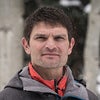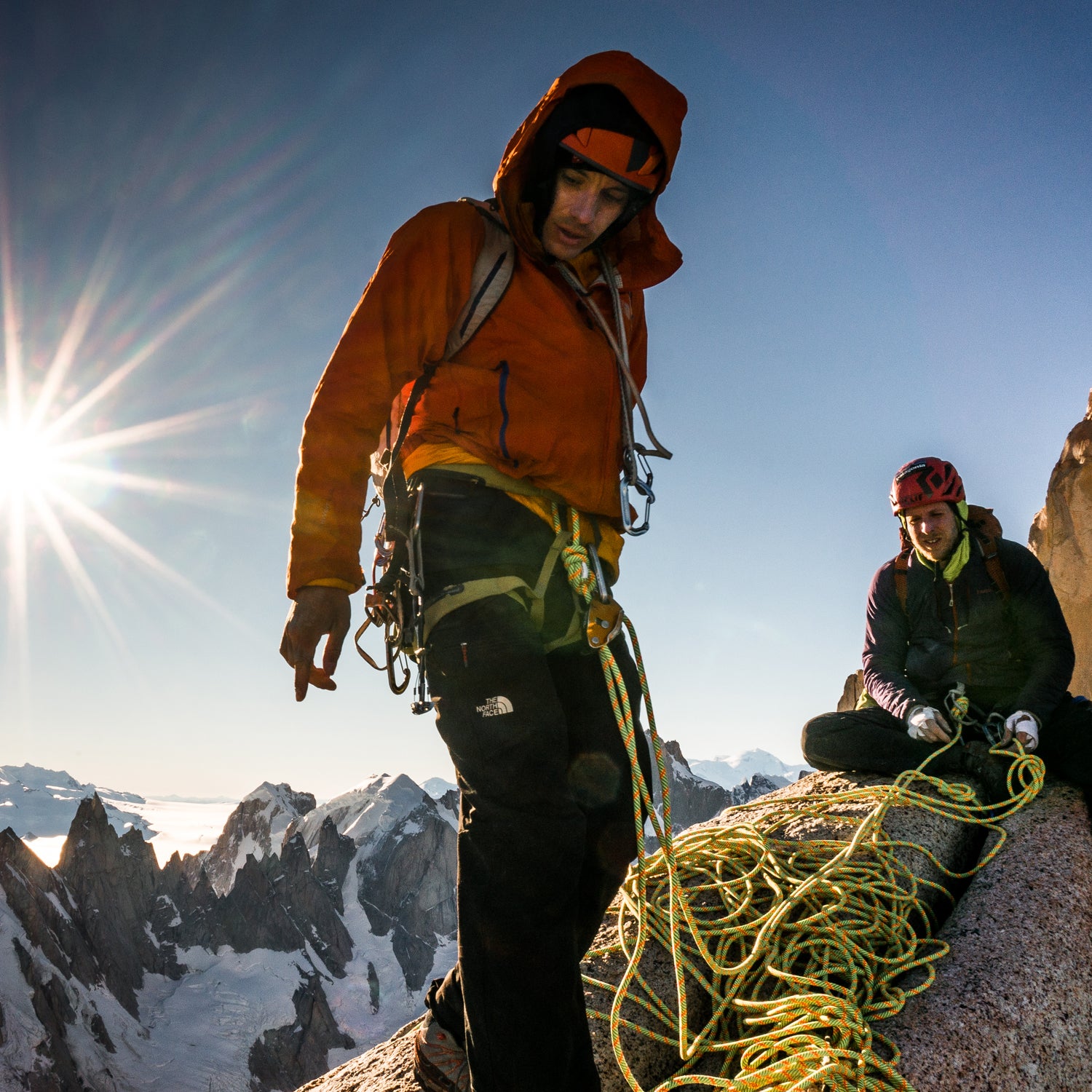Climbing movies have to appeal to van-dwelling dirtbags and armchair alpinists alike, and no one is better than threading that needle than the guys behind the , Pete Mortimer and Josh Lowell. The two filmmakers founded the annual climbing film series in 2006, and it's since has helped catapult athletes like Alex Honnold, Ueli Steck, and the late Dean Potter to global renown.��
When Reel Rock’s 10th edition premieres in Boulder, Colorado, on September 17, Mortimer and Lowell will unveil one of their most anticipated lineups yet: a sneak preview of a feature-length documentary on Tommy Caldwell’s and Kevin Jorgeson’s free climb of the Dawn Wall set to premiere next year; a tribute to Potter, who died in a BASE jumping crash in May; and a moving chronicle of Caldwell’s and Honnold’s in Patagonia, A Line Across the Sky.��
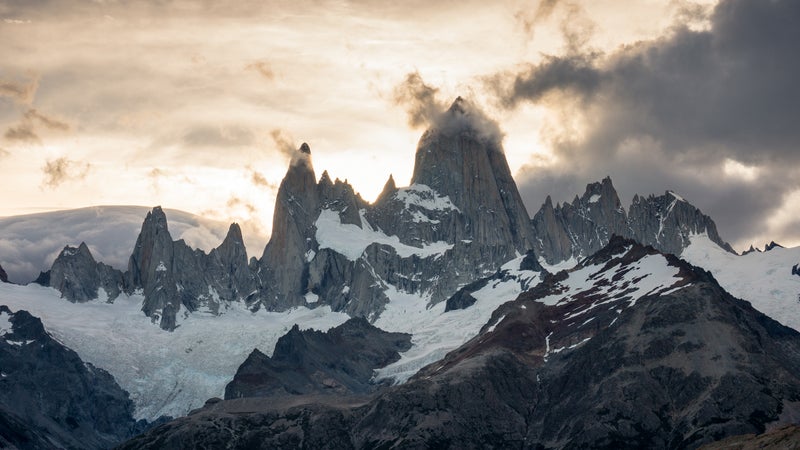
Mortimer, 41, and Lowell, 42 were climbing buddies at Colorado College in the mid-’90s, and each has gone on to found the two studios on the cutting edge of rock climbing films: and , respectively. Reel Rock began as a means of exhibiting their work but has grown into a cultural phenomenon. The tour now counts nearly 500 shows worldwide and will premiere on its seventh continent later this month with a free show in Antarctica.��
We spoke to Lowell and Mortimer from their homes in Pound Ridge, New York, and Boulder to find out how Reel Rock grew up so fast, glean some insight on this year’s films, and get their take on climbing’s rise to mainstream prominence.
OUTSIDE: Why do you think the tour has succeeded?
MORTIMER: We kind of see ourselves as that bridge between the core climbing world and the mainstream media. We’re climbers, we hang out with these guys, we’re on the inside, but we also come from a writing and film background and we’re more interested in making documentaries. Our growth—from 40 or 50 shows our first year to 500 this year—has mirrored a lot of the growth in climbing.
Is there a story you’re most proud of telling?
LOWELL: Valley Uprising [a feature-length documentary on the history of climbing in Yosemite] was a huge step for us last year. Pete and [filmmaker Nick Rosen] spent five years researching it and collecting assets, and I spent a year editing it. That took it to another level as far as the intricacy of the storytelling and putting out a product that would have really broad appeal beyond rock climbers.
MORTIMER: I think Valley Uprising gets to the heart of the alternative lifestyle and the counterculture and community, just living this experiential life as opposed to a materialistic life. If I were talking to someone and said, “You’ve got to watch one of our movies,” that would be the one.
In A Line Across the Sky, the guys are joking during the whole climb. It struck me as incredibly lighthearted given the danger. How did that come together?
MORTIMER: We heard about what Alex and Tommy were thinking of doing, but we didn’t really think they’d be able to pull it off. They got a camera and we were like, “Shoot as much as you can,” because nobody can go shoot that with them. It was a Hail Mary. When Tommy brought over the footage after they got home, he was so apologetic, like, “We botched it, man. The climbing was so hardcore we couldn’t pull out the camera.” But the footage they brought back, to me, is the best stuff to watch. These guys did the most hardcore thing ever—a 50-year, sought-out prize on Alex’s first alpine climb—and they were just laughing the whole time. You can’t take climbing seriously after that.
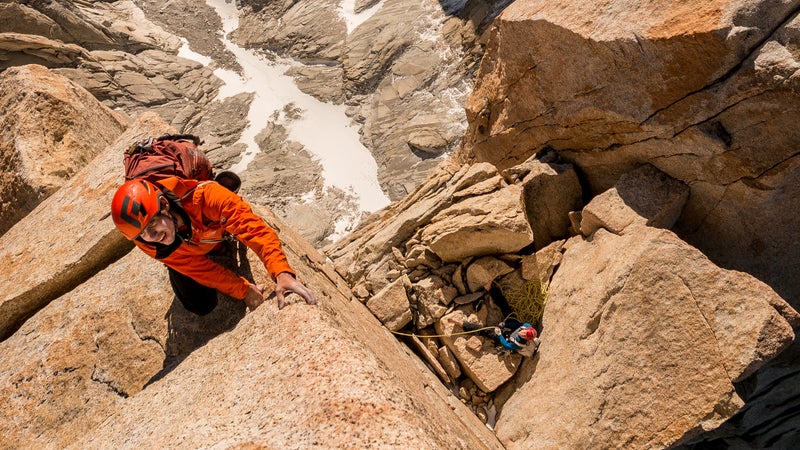
LOWELL: It was hilarious going through their footage after the fact. They barely knew how to work the camera, and sometimes they forgot it was rolling. There was this one scene: They’d done the climb, and they called us and said, “Hey guys, we did the climb! We barely shot anything, though.” We were like, “Okay, that’s great you did it. We want to send down a producer and let’s find a cameraman and figure out how to do pickup shots and get interviews.” And we just heard crickets—they didn’t even answer. Then later, I’m watching the footage and there’s this whole scene where Tommy and Alex are talking, and Alex is like, “Dude, did you get those emails from Pete and Josh?” And Tommy’s like, “Oh, yeah, I just ignored ’em.” [Alex:] “Yeah, they said they wanted to send down a producer! I’m like, you guys can’t send down a producer!” [Tommy:] “Yeah, I’m just going to ignore them and hope they disappear.”
It seems like Honnold’s personality really shines in that film as well as Showdown at Horseshoe Hell (a segment about a 24-hour climbing marathon in Arkansas, which is also premiering at Reel Rock). Do you remember your first impression of him?
MORTIMER: We met Alex seven or eight years ago on a North Face trip in the Czech Republic. He was completely, maniacally focused on climbing; almost unpleasant to be around. He didn’t want to talk, and he couldn’t stand waiting for people to finish breakfast, because he wasn’t getting out climbing soon enough. He would go into his room at night, close his door, and read climbing magazines. We did an interview with him, and he was such an asshole—just an angry, mean, misanthropic kid. We were like, “Dude, you gotta lighten up a little.” But through climbing he’s met all these amazing people, and he’s become this really smart, articulate, funny guy. He’s a one-in-a-billion person, not just athlete.��
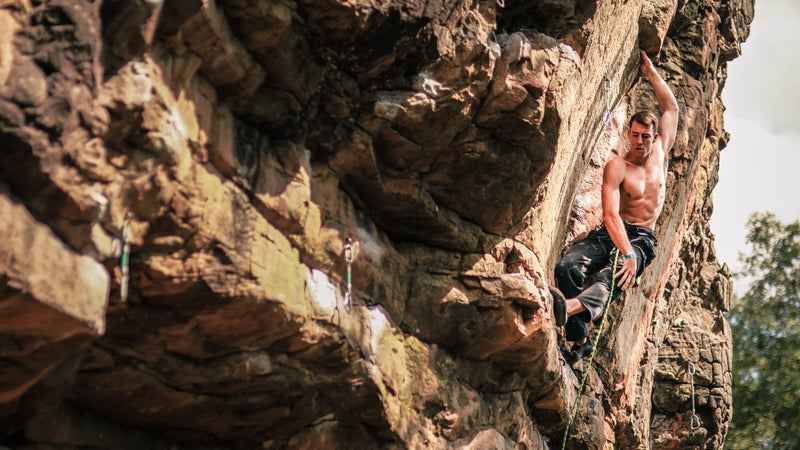
How’s the Dawn Wall documentary coming?
MORTIMER: We’ve started putting together the film on paper. It’ll be a 90-minute feature that will go a lot more into Tommy’s biography and the relationship between him and Kevin [Jorgeson], and all this amazing stuff that went into achieving that climb. Tommy’s writing a book about his life right now, so we’re in our creative process and he’s in his, and we’re kind of helping each other.
What do you make of climbing’s rise in mainstream media coverage over the past year and just general growth overall?
LOWELL: I really enjoy seeing climbing treated with awe and respect. I think climbers deserve to be viewed as heroes and have their accomplishments recognized. It can come off as fear mongering and exploitative when everyone’s all about death defying thrill seekers. But when reporters and outlets take the time to explain what’s special about a climbing story, I get a kick out of it.

